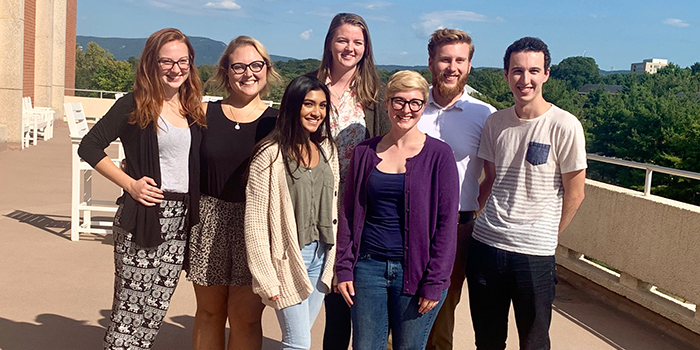
Purpose
The concentration in experimental psychology is designed for students interested in pursuing a Ph.D. in various areas of research psychology with an emphasis on basic science such as cognitive psychology, sensation and perception, learning theory, and behavioral neuroscience. It also provides a foundation for work in applied settings such as in the federal government.
Overview
Experimental psychology is the area of psychology that utilizes experimental methodology in the science of behavior and mental processes. It is an umbrella term that encompasses the efforts of researchers in several areas of psychology, including biological, perceptual, cognitive, developmental, and social psychology. Experimental psychologists seek to identify and understand the structures and processes that underlie behavior, and examine topics such as vision, audition, attention, performance, learning, memory, language, problem solving, reasoning, and decision making. Students will work throughout their two years on course work, scholarly studies, and research in their mentor's specific area of experimental psychology. Students may also gain valuable experience as a teaching assistant (e.g., experimental methods) or in comparative approaches to research.
Program Curriculum
A complete listing of all courses associated with this program is listed in JMU's official graduate catalog.
Other experiences
In addition to course work and other requirements of the psychological sciences program (e.g., Apprenticeship, Research Roundtable), students participate in a monthly concentration meeting where faculty and students discuss published research and professional issues related to the various topics in experimental psychology.
For information about this concentration, please contact:
Dr. Jessica Salvatore salvatja@jmu.edu

